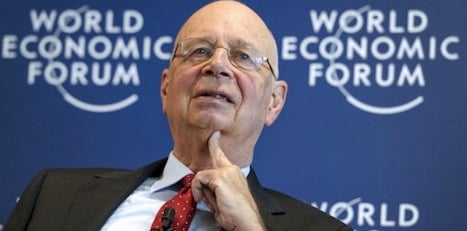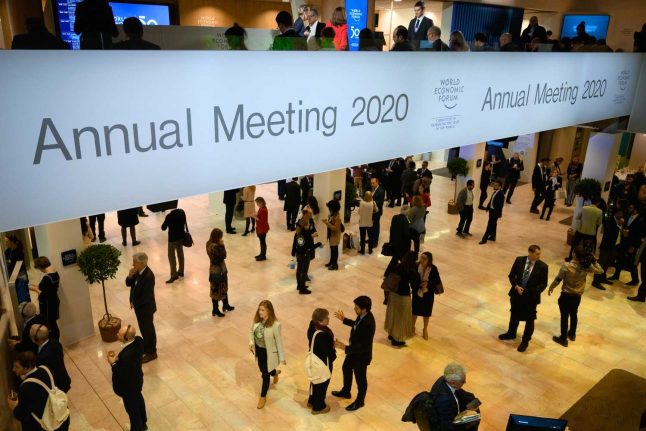Some 45 heads of state or government will keep company with the 2,500 participants descending on the picturesque Alpine town for the five-day World Economic Forum starting on Tuesday.
Russian Prime Minister Dmitry Medvedev, German Chancellor Angela Merkel and British Prime Minister David Cameron will deliver speeches expected to focus on efforts to maintain the nascent pickup in global economic activity.
The event kicks off Tuesday night with Hollywood actress Charlize Theron providing a bit of sparkle as she accepts an award for her work supporting African youth in the fight against AIDS.
The eurozone crisis is likely to take centre stage the rest of the week, but unlike last year — when fears of a eurozone collapse remained very real — this year's meeting takes place amidst guarded hope that Europe is finally tackling its debt woes.
Italian Prime Minister Mario Monti and European Central Bank President Mario Draghi will speak on the way forward for the eurozone, while International Monetary Fund chief Christine Lagarde will address methods of generating stable growth.
Noticeable by their absence will be high-profile officials from either China or the United States, though US Senator John McCain will be on hand for a panel on the future of conflict-torn Syria.
The war in Syria and security issues throughout the Middle East and Africa will be on the table, with Jordan's King Abdullah II making a special address.
The premiers of Egypt, Lebanon, Libya, Tunisia and the Palestinian Territories are due to attend, as well as Israeli President Shimon Peres.
Though too fresh to make it on the official agenda, France's ongoing military intervention against Islamist rebels in Mali and the fallout from the Algerian hostage crisis will also be key talking points.
Nigerian President Goodluck Jonathan, whose country will lead a West African ground force heading to join French troops in Mali, will share the stage with South African leader Jacob Zuma for a panel on risks in the continent.
UN chief Ban Ki-moon will speak on the outlook for global development, joined on a panel with Cameron, Microsoft founder Bill Gates and Jordan's Queen Rania.
More than 900 top business executives are expected to attend, with this year's forum co-chaired by the CEOs of Coca-Cola, Embraer, UBS, Dow Chemical and the head of Transparency International.
One CEO pencilled in to take part, former Rio Tinto head Tom Albanese, is unlikely to show up following his resignation on Thursday after the global mining giant announced a $14-billion write-down.
Organisers have said the theme of this year's forum — "Resilient Dynamism" — focuses on how the global economic system can withstand and quickly recover from sudden shocks, like the eurozone crisis.
The role of women in economic decision-making will also be highlighted in a panel featuring, among others, Lagarde and Facebook Chief Operating Officer Sheryl Sandberg.
As well as politics, diplomacy and business, discussions will be held on "mega sporting events", jazz music, religion in the 21st century, education and the fight against obesity.
Founded in 1971 by German economist Klaus Schwab, now 74, the Davos forum has become a not-to-miss gathering for the global elite, with participants shelling out tens of thousands of euros on attendance fees, travel and accommodation.
The invitation-only meeting is also known for its informal luncheons and cocktail parties, often hosted by corporate sponsors and with exclusive guest lists, where political and business leaders can rub shoulders and network.



 Please whitelist us to continue reading.
Please whitelist us to continue reading.
Member comments